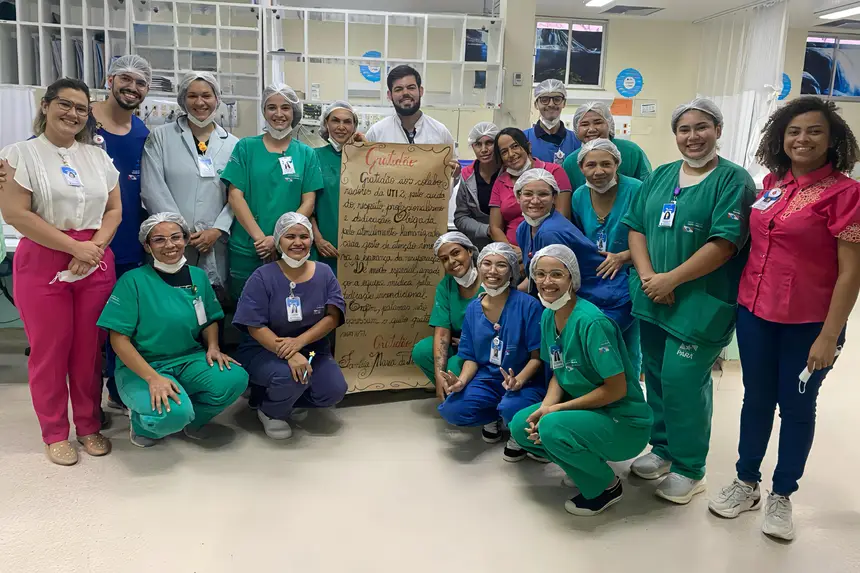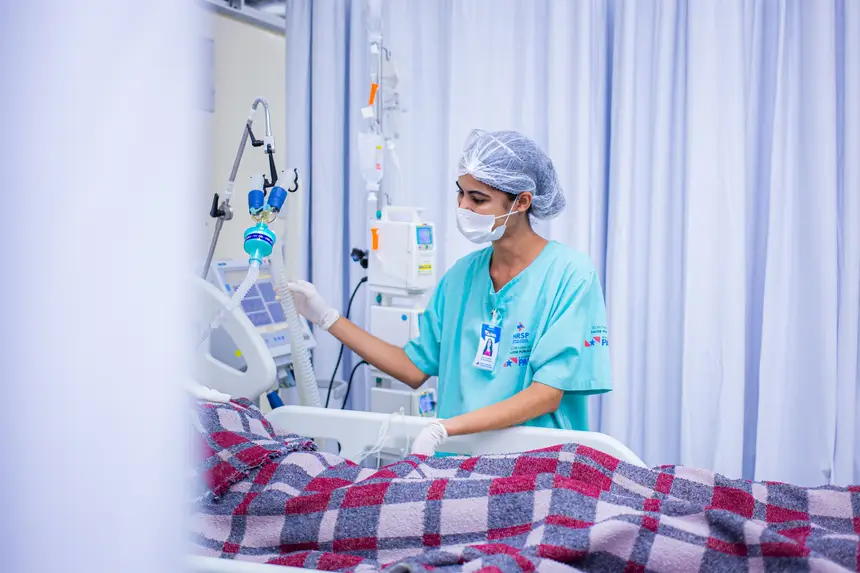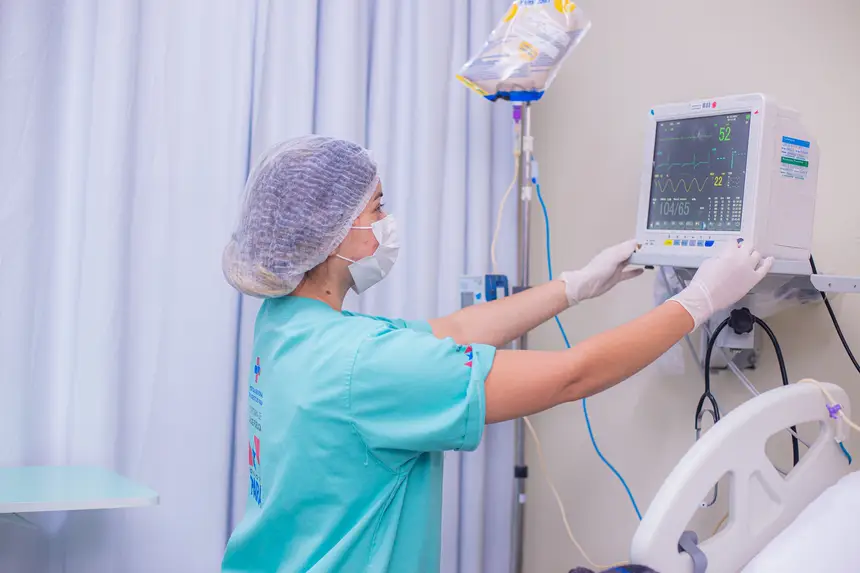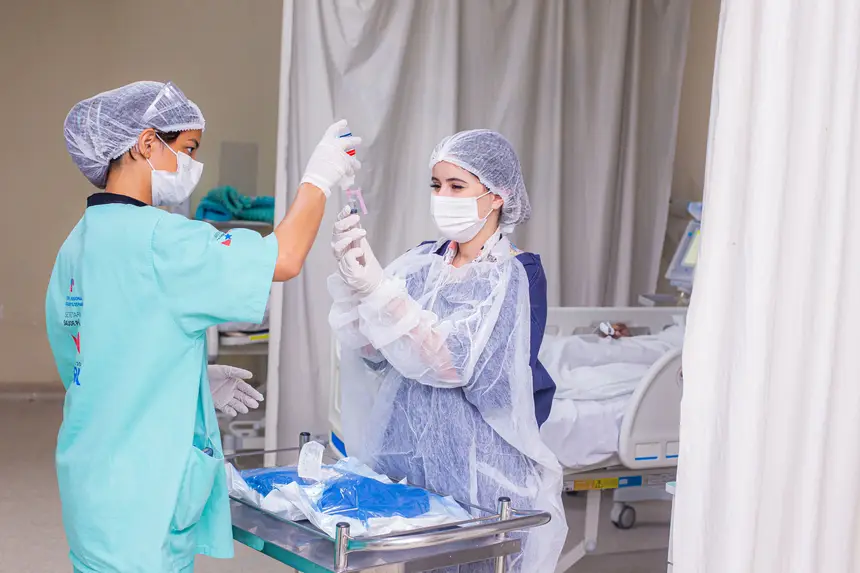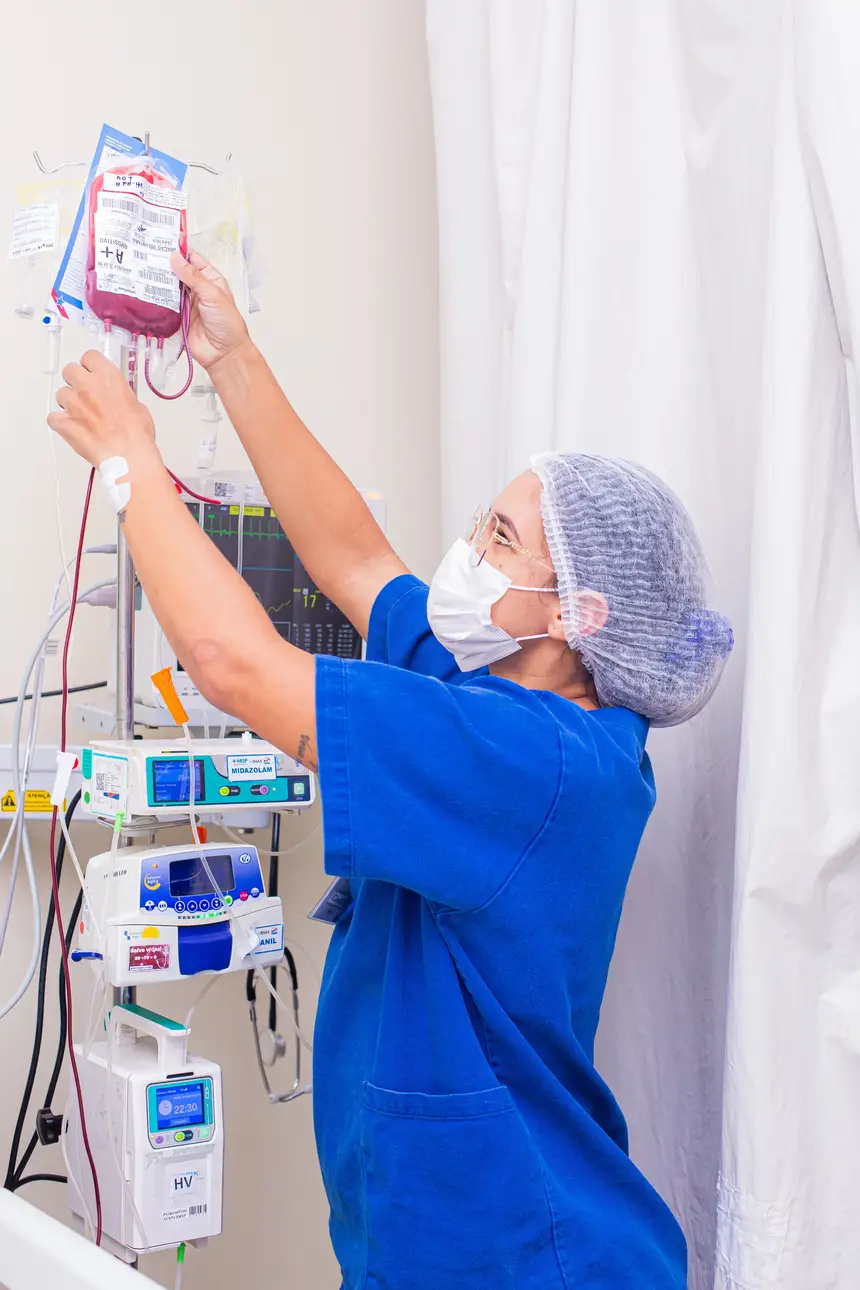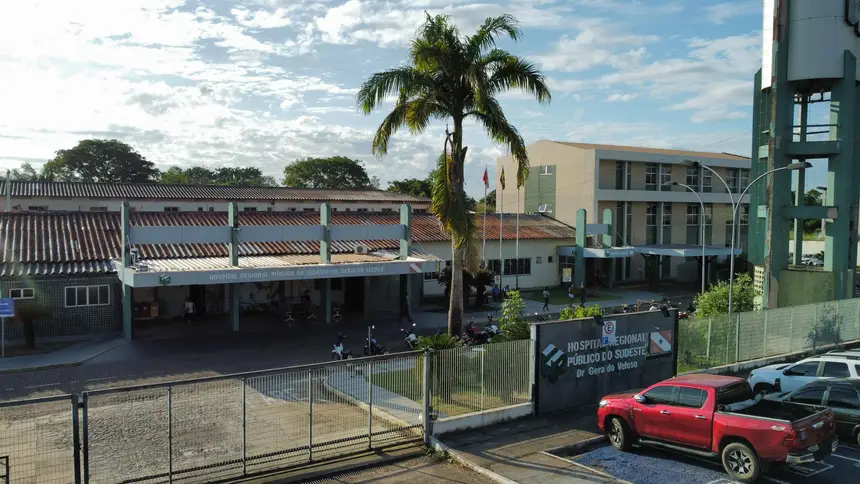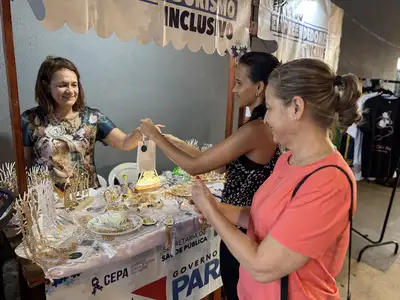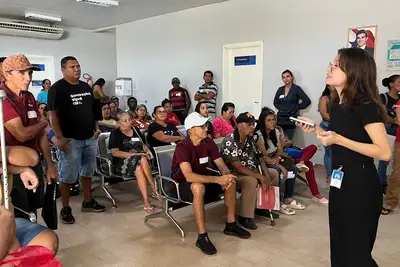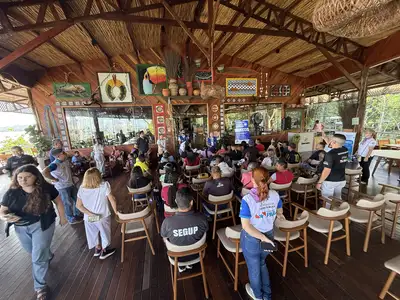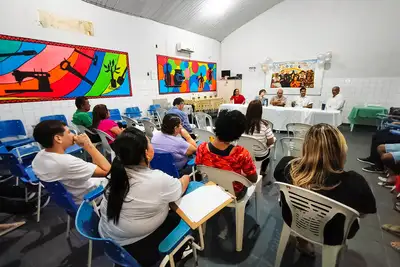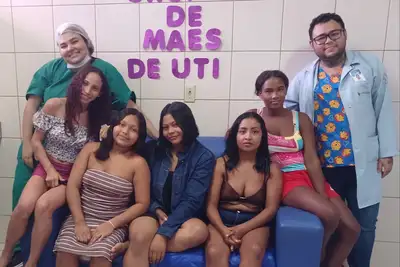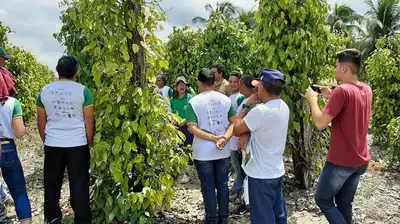Marabá Hospital Combines Excellence and Humanized Care in the Intensive Care Unit
The sector provides advanced support to critically ill patients, with a multidisciplinary team, protocols, and initiatives that strengthen bonds with families
At the Regional Hospital of Southeast Pará – Dr. Geraldo Veloso (HRSP), in Marabá, the Adult Intensive Care Unit (ICU) offers advanced support to the most severe patients in the region. With modern infrastructure and a specialized team, the sector combines technical excellence with sensitivity in care, also ensuring support for families.
Maria de Lourdes, 71 years old, a resident of Bom Jesus do Tocantins in the Carajás region, was hospitalized for eight days in the ICU after facing a severe venous thrombosis. During this period, her family moved the professionals by delivering a poster with words of affection and gratitude. The gesture expressed recognition for the daily care of the team and symbolized the hope that strengthens patients and families on the delicate path of intensive treatment.
"We are immensely grateful to the ICU staff at the Regional Hospital of Marabá for their care, respect, professionalism, and dedication. The attention received, with gestures of affection and support, renewed our hope every day. In particular, we thank the medical team for their tireless dedication. Words are not enough to express all our gratitude," read the message on the poster delivered by Maria de Lourdes' family.
The intensive therapy service at the Pará Government unit has 20 inpatient beds with constant monitoring. Assistance is provided by a multidisciplinary team that follows strict safety protocols and modern care practices, always focused on the patient's recovery.
Alan Ferreira, the hospital's assistant director, emphasizes that the priority is patient-centered care. "In the ICU, all decisions are made collaboratively by the multidisciplinary team, always focusing on safety and recovery. Our perspective goes beyond the bed: we also welcome families with information, support, and listening. This expanded care is essential to strengthen everyone facing the treatment process," he stated.
Humanization and Psychosocial Support
In addition to excellent clinical care, the Adult ICU invests in initiatives that make the environment more welcoming. Projects like Acordes do Bem, which brings musical performances to the sector, Cine em Movimento, with sessions adapted to the hospital space, and religious visits that offer spiritual support, are examples of this approach.
For the institution's humanization analyst, Daiane Uszynski, every gesture aimed at the well-being of the patient and family makes a difference in treatment. "Our commitment is to transform the hospital environment into a space of integral care. This sensitive perspective strengthens bonds and contributes to patients' recovery, as well as providing comfort to families," she highlighted.
Psychosocial work is also an essential part of intensive care. Psychologists and social workers provide daily bedside care, supporting patients and families in a process that involves listening, guidance, and emotional support. This assistance is complex, as it deals with the psychological impact of ICU hospitalization, helping to alleviate anxiety, strengthen family bonds, and provide clarity about each stage of treatment.
Psychologist Keliane Cardoso de Sousa, responsible for the psychosocial sector, reinforces the importance of this support. "In the ICU, we do not only care for the clinical condition but also for the emotions that emerge in such a delicate moment. Our work is to offer listening, support, and guidance, helping families and patients face the process with more security and less suffering," she stated.
Structure and Specialized Team
The Adult Intensive Care Unit (ICU) of the Regional Hospital of Marabá, managed by the Institute of Social and Environmental Health of the Amazon (ISSAA) and the State Department of Public Health (Sespa), has cutting-edge technology and safety protocols for the well-being of users.
Ricardo Leandro, the nurse in charge of the ICU, summarizes the sector's routine: "The ICU requires constant vigilance. We follow strict hygiene and assistance protocols, with well-defined routines to reduce risks and ensure patient recovery. Technology is essential, but what transforms care is the dedication of the team," he emphasized.
The professional also highlighted that in the unit, assistance is guaranteed by a team of intensivist doctors, nurses, physiotherapists, nursing technicians, pharmacists, nutritionists, psychologists, and social workers, who work in an integrated and humanized manner.
"Patients in critical condition are treated in the sector, including victims of traffic accidents with severe trauma, people in the postoperative phase of high-complexity surgeries, as well as clinical cases with severe complications, such as neurological and infectious diseases, and situations of multiple organ failure, among other illnesses," explained the nurse.
Care at the Regional Public Hospital of Southeast is 100% free, provided through the Unified Health System (SUS). The unit has 135 beds, including 97 for clinical hospitalization and 38 for Intensive Care Units (ICUs).
Text by Ederson Oliveira


